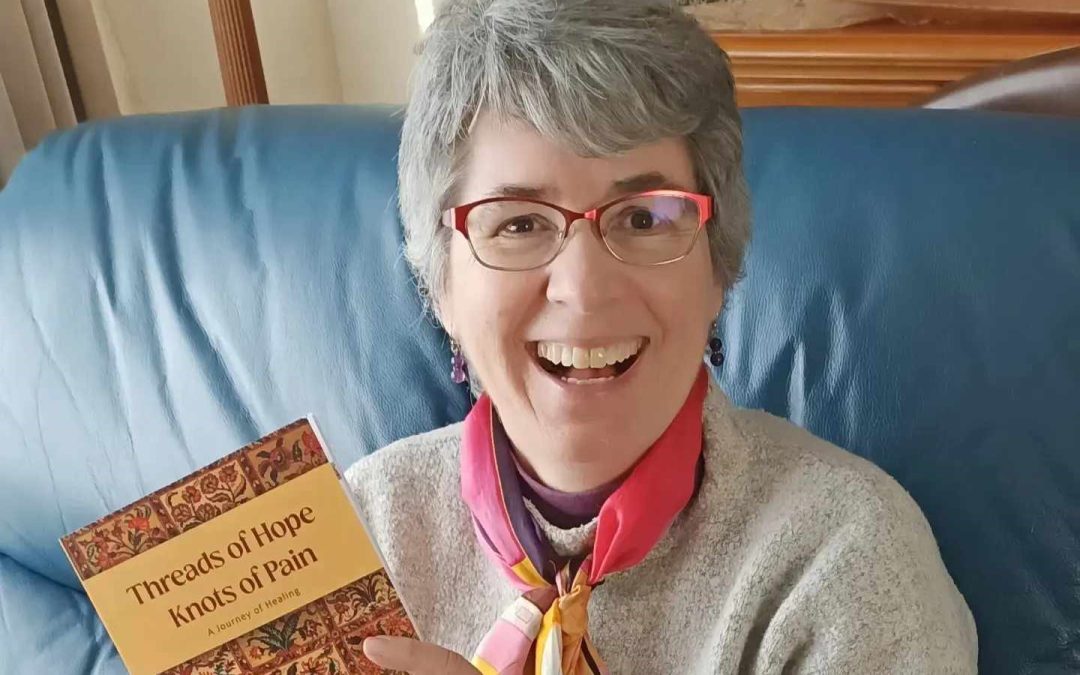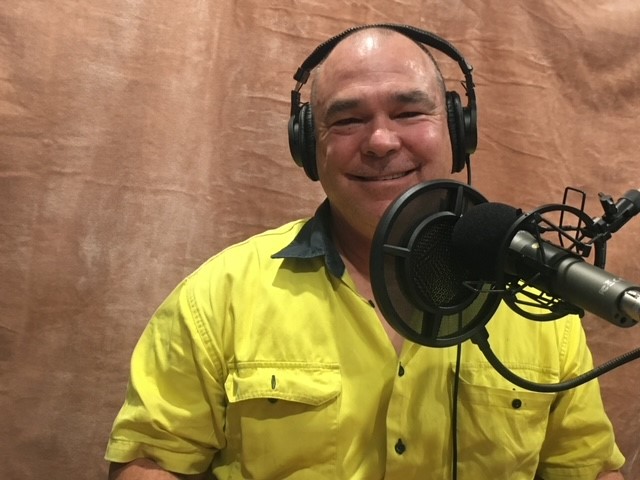
Episode 49: If a donkey can hear God, what about me?
Episode Description:
How often do we miss what God is trying to say because we are not looking or listening? At what point are we willing to disobey God? What is our breaking point? Join us in this latest episode of ‘Hearing God’ as we unpack the truths in this story and how Balaam and his talking donkey met and experienced God. This story is a great reminder to first seek God for ourselves and not go running to others to hear from God for us.
Episode Notes:
Background to Balaam and the talking donkey:
- We read about Balaam in Numbers 22-24
- Near the end of the Israelites wandering in the desert for 40 years after fleeing Egypt, The Israelites were camped on the plains, east of the Jordan River across from Jericho.
- Balak was the King of Moab & had seen what had happened to other nations that stood up to the Israelites. He sent for a prophet, albeit a false prophet, or better still – an unholy prophet, to bless the Moabites and curse the Israelites so the Moabites would win the war. Balaam had a reputation that whoever he blessed won, and whoever he cursed lost.
- Balak heard and felt threatened by the proximity, the strength and the reputation of the Israelites.
- Balak was going to pay Balaam well.
- Balaam told the messengers, stay the night, and I will tell you the answer in the morning.
- God spoke to Balaam and asked who these men were. Balaam told him. God said, do NOT go with them. You must not curse the Israelites because they are blessed.
- The next morning, Balaam said go back to your own country, for the Lord has refused to let me go with you. Even at this stage, Balaam didn’t own it himself but blamed God for not letting him go. Subtle difference, but it opened the door slightly.
- Messengers went back to Balak and told him. Balak sent higher officials and higher financial incentives.
- Balaam said, “Even if Balak gave me all the silver and gold in his palace, I could not do anything great or small to go beyond the command of the Lord my God.” But spend the night here so I can find out what else the Lord will tell me. Don’t play with fire – you will get burnt!
- God said you can go with them, but wait for them to come to you in the morning.
- First thing, Balaam got up, saddled his donkey and went out to find them.
- God was angry at him. In Numbers 22:22, we see Balaam riding on his donkey and having two servants with him. The angel of the Lord stood in the road to oppose him.
- Verse 23 – when the donkey saw the angel of the Lord standing in the road with a drawn sword in his hand, the donkey turned off the road into a field. Balaam beat it to get it back on the road.
- Verse 24 – Then the angel of the Lord stood in a narrow path through the vineyards with walls on both sides. When the donkey saw the angel, it pressed close to the wall, crushing Balaam’s foot against it. Balaam beat the donkey a second time.
- Verse 26. Then, the angel of the Lord moved ahead and stood in a narrow place with no room to turn. When the donkey saw the angel, it lay down under Balaam. Balaam was angry and beat it again.
- Verse 28 The Lord opened the donkey’s mouth, and it said to Balaam, “What have I done to make you beat me these three times?”
- Balaam responded, “You have made a fool of me. If only I had a sword, I would kill you right now.”
- The donkey said, “Am I not your own donkey, which you have always ridden? Have I ever done this to you before?
- NO said Balaam. (Notice how he was so intent on sinning that he didn’t notice the strange phenomenon of a talking donkey??)
- Then the Lord opened Balaam’s eyes, and he saw the angel of the Lord standing in the road with his sword drawn. Balaam bowed low and fell face down.
- The angel said – why did you beat the donkey? I came here to oppose you because your path is a reckless one. The donkey saw me and obeyed. If the donkey hadn’t turned away and tried to stop, I would have killed you, but I will now spare your life.
- Balaam realised he had sinned. He said he would go home.
- The angel said, no, go with the men, but only say what I tell you to say.
- When he reaches Balak, he tells him he can only say what God tells him to say.
- Balak takes him to a mountain overlooking the vast number of Israelites and says curse them. Balaam’s first message – build me 7 altars, sacrifice 7 bulls and 7 rams but he couldn’t curse them.
- Balak horrified.
- Balak says, come to another place where you can see the Israelites. He built another 7 altars with a bull and ram on each altar. Chapter 23 vs 19 & 20 “God is not a human, that he should lie, not a human being that he should change his mind. Does he speak and then not act? Does he promise and then not fulfil? I have received a command to bless – he has blessed them and I cannot change it.
- Balak is very persistent and says, let’s go to one more place to see the Israelites.
- Verse 24 “Now when Balaam saw that it pleased the Lord to bless Israel, he didn’t resort to divination as at other times. He blessed Israel willingly.”
- Balak was angry and sent Balaam home without rewarding him, breaking his promise.
- Not the end for Balaam – crafty – couldn’t directly curse the Israelites, so told Balak to entice them with idols and prostitutes.
- Numbers 31:16 “They were the ones who followed Balaam’s advice and enticed the Israelites to be unfaithful to the Lordin the Peor incident, so that a plague struck the Lord‘s people
- 3 New Testament references all refer to Balaam as a false prophet
- Revelations 2:14 Speaking against the church at Pergamum: ‘Nevertheless, I have a few things against you: There are some among you who hold to the teaching of Balaam, who taught Balak to entice the Israelites to sin so that they ate food sacrificed to idols and committed sexual immorality.’
- In 2 Peter 2:15-16, Peter’s talking about false prophets and says: ‘They have left the straight way and wandered off to follow the way of Balaam , son of Bezer, who loved the wages of wickedness. But he was rebuked for his wrongdoing by a donkey—an animal without speech—who spoke with a human voice and restrained the prophet’s madness.’
- Jude 1:1 ‘they have rushed for profit into Balaam’s error.’
First Principle: God can speak through unexpected sources.
- God can use anything, even a donkey.
- God is all-powerful and will use whoever and whatever He desires to glorify Himself and achieve His purposes.
- God goes to extraordinary lengths to get our attention.
- Balaam was meant to be a seer (someone who can see in the spiritual world), but he didn’t see the angel.
Second Principle: Be alert both to watch for God and against the path of sin.
- Balaam completely missed the phenomenon of a talking donkey!! It wasn’t until God opened Balaam’s eyes to see the angel that Balaam realised what was happening.
- How often do we miss what God is trying to say because we are not looking or listening?
- Balaam was a prophet for profit. He was willing to do and say whatever to get rich. He desired prestige, status and riches.
- At what point are we willing to disobey God? When the price changes as it did with Balaam?
Third Principle: Sin always carries consequences.
- Never play with sin.
- If God says no, don’t keep asking!! Don’t play with evil. Balaam should have sent them away immediately the second time. He already knew God’s thoughts on the matter.
- Balaam heard, “If you want to go, then go”. Was that God?
- Balaam didn’t wait for the entourage to come in the morning. He leapt out of bed, got ready, and went out to meet them. So he didn’t follow God’s instructions.
- Balaam compromised. He opened the ‘back door’ to betrayal and corruption.
- When we partner with things not of God, we open the back door in our life to consequences not of God.
- James 4:7 – resist the devil. Don’t get into bed with the devil.
- Be careful of false prophets. They target people in deception who can’t hear God for themselves and don’t have a true checkpoint.
- A great reminder to seek God for yourself and not run to others to hear from God for you.
Summary:
- God can speak through unexpected sources.
- Be alert both to watch for God and against the path of sin.
- Sin always carries consequences.
Prophetic activation:
Turn your heart and thoughts to Father God and ask Him –
- “God, is there an area of my life where I am ‘playing with fire’, where I’ve opened the door a little bit?”
- “If there is God, please show me what it is and what I need to do?”
Time Stamps:
[0:40] – Gary & Jane share briefly how they have heard God this week.
[3:26] – Background to the story of Balaam.
[11:03] – First Principle: God can speak through unexpected sources.
[12:58] – Second Principle: Be alert both to watch for God and against the path of sin.
[15:24] – At what point are we willing to disobey God?
[16:49] – Third Principle: Sin always carries consequences.
[18:29] – Recap the principles.
[19:00] – Prophetic activation.
[19:56] – Gary & Jane both share a prophetic word for a listener.
[22:09] – Gary prays for you.
Resources / Links Mentioned:
- Episode 4 (Different ways God can speak to us): https://garyandjane.co/episode-4-how-does-god-talk-to-us/
- Episode 16 (How else can God talk to me): https://garyandjane.co/episode-16-how-else-can-god-talk-to-me/
- Episode 27 (Times when we can easily miss hearing God): https://garyandjane.co/times-when-we-can-easily-miss-hearing-god/
- Website: https://garyandjane.co
Bible Verses Mentioned:
- Numbers 22-24
- Numbers 31:16
- Revelations 2:14
- 2 Peter 2:15-16
- Jude 1:1
- James 4:7
Connect with Gary & Jane:
- Visit the Hearing God podcast website https://garyandjane.co
- Email admin@garyandjane.co
- Facebook page: https://www.facebook.com/profile.php?id=100092429006234
- Instagram page: https://www.instagram.com/hearinggodpodcast/
Support the show:
- Please share this podcast with someone who would value hearing from God.
- Follow and leave a rating + review on your favourite podcast listening app.
- If God is leading your heart to donate or support the show in any way, please visit https://buymeacoffee/garyandjanM Thank you so much.



















